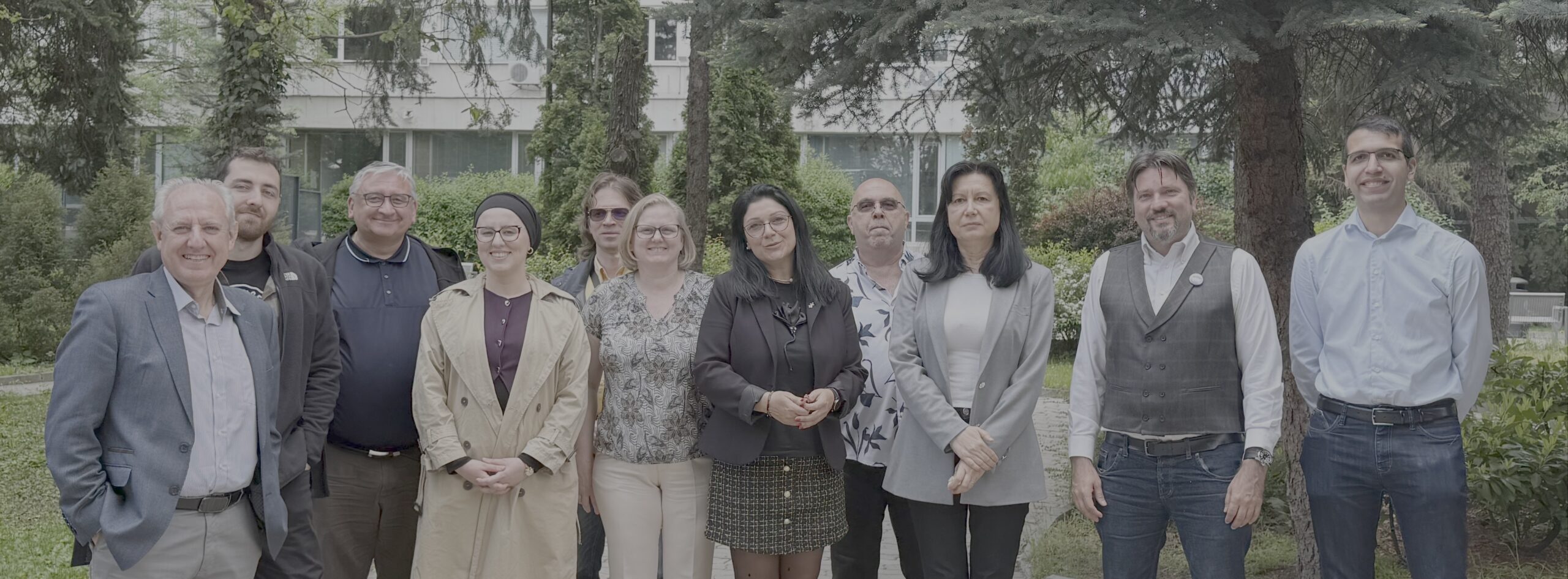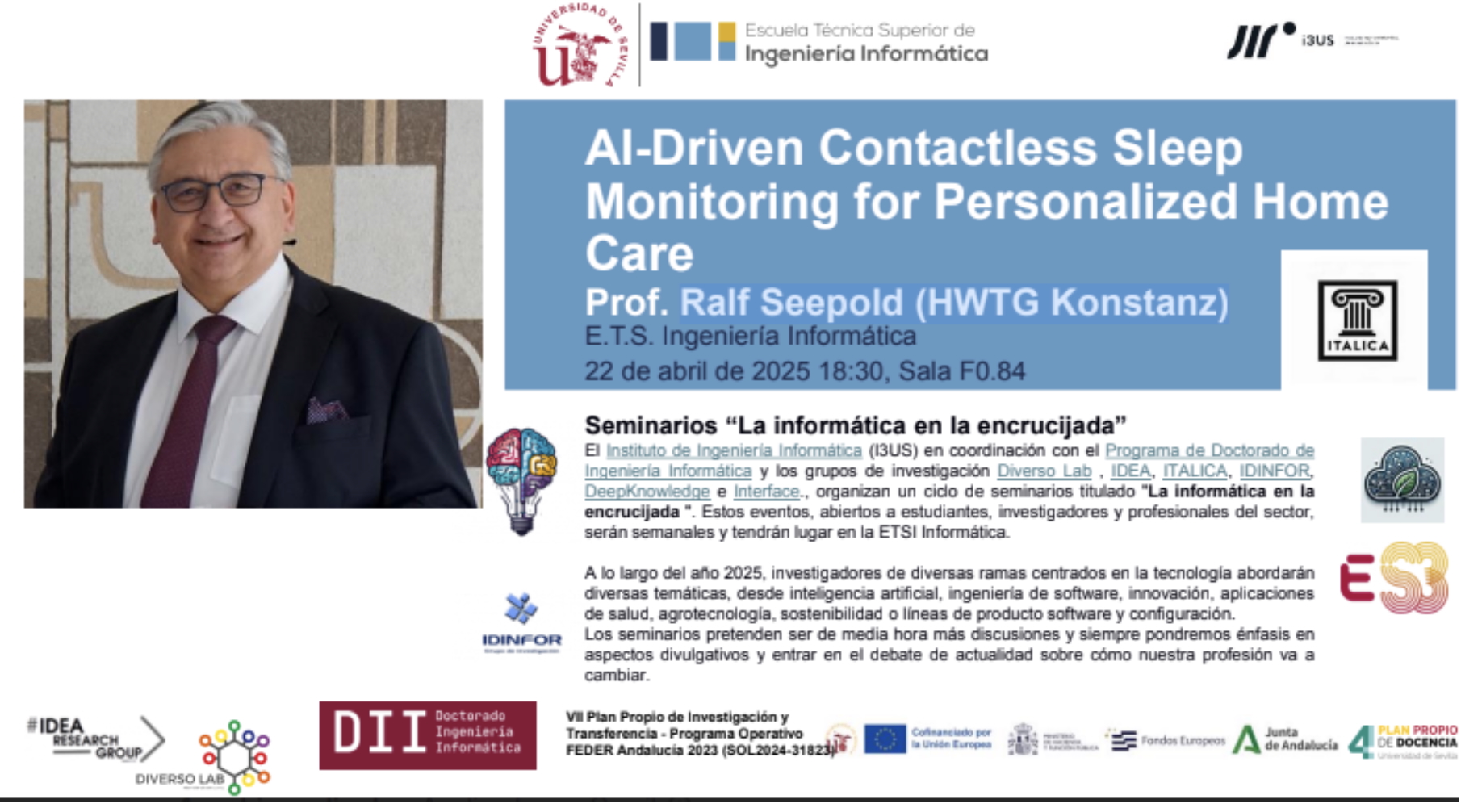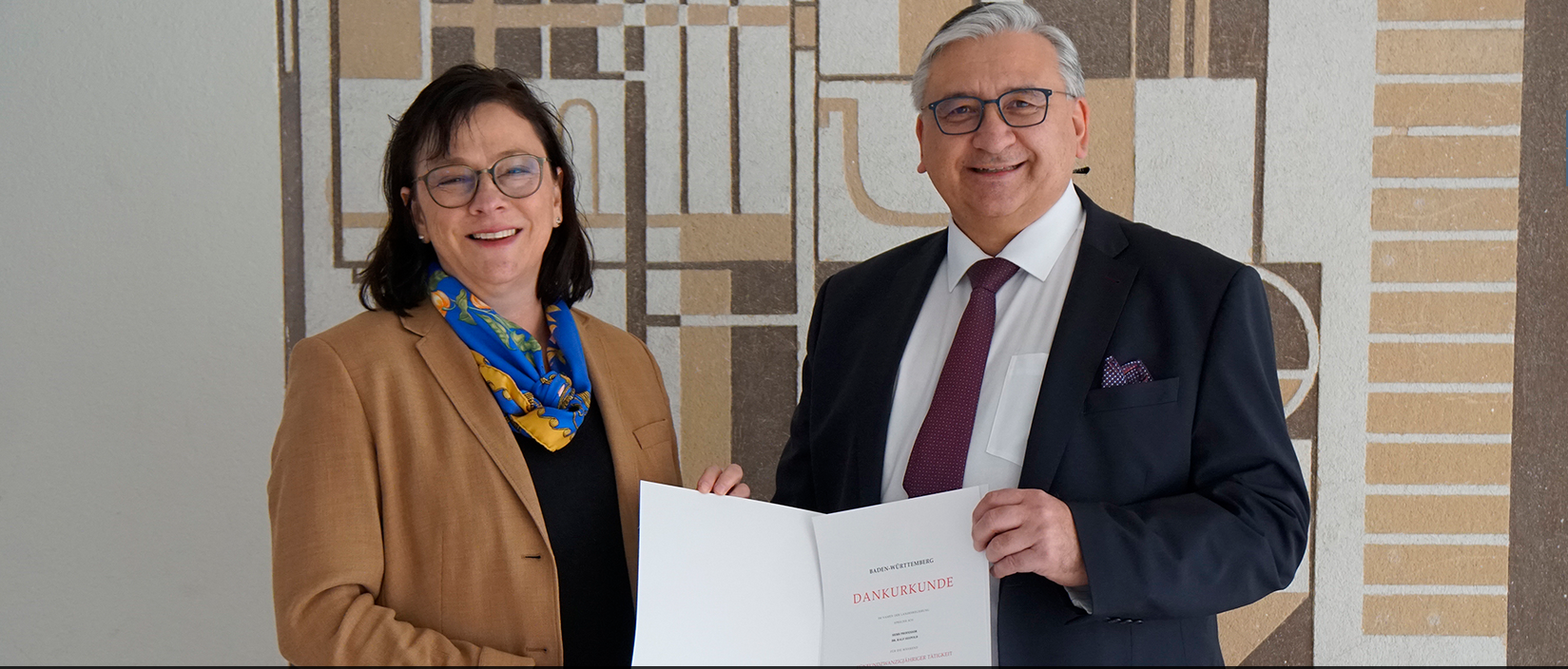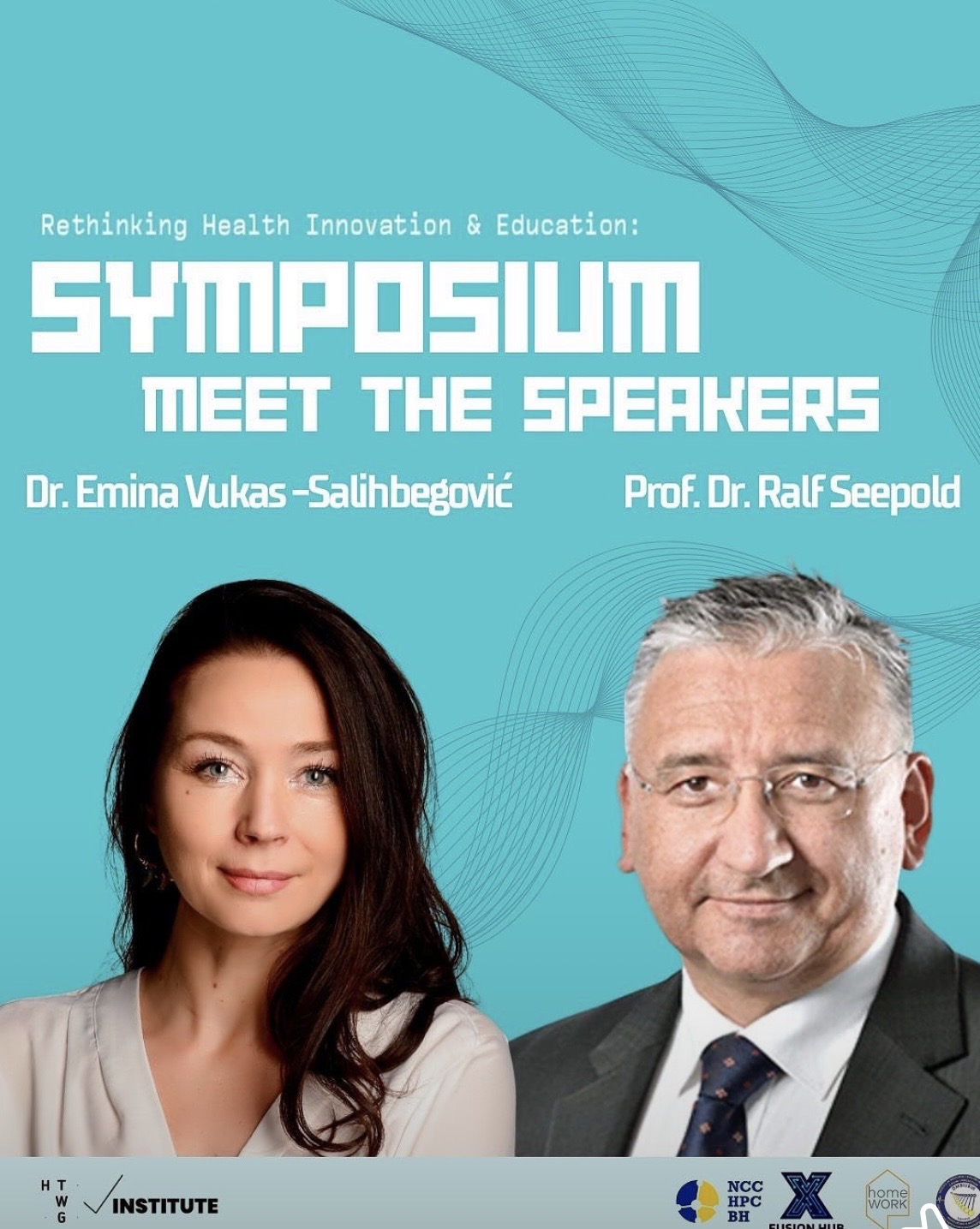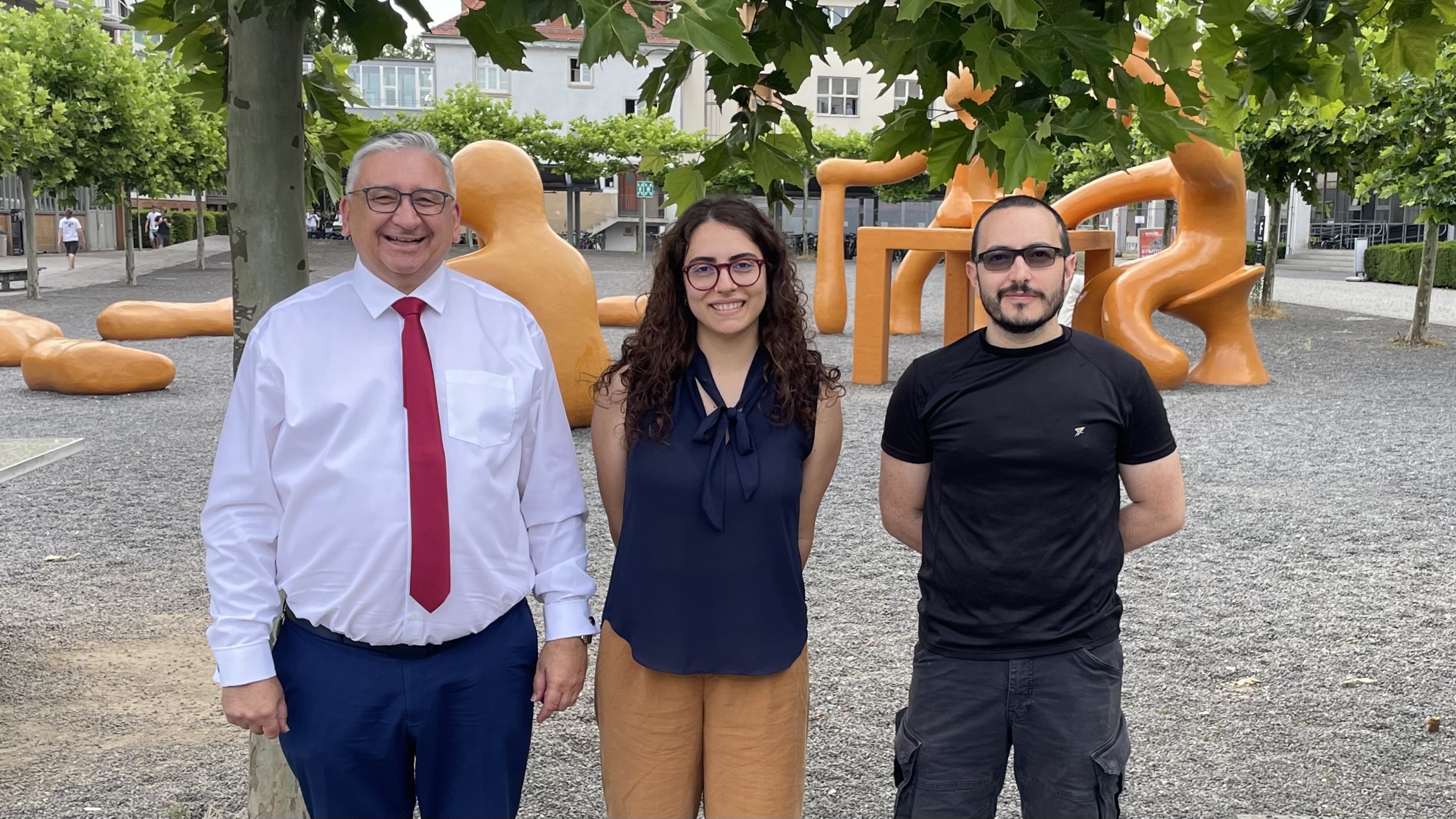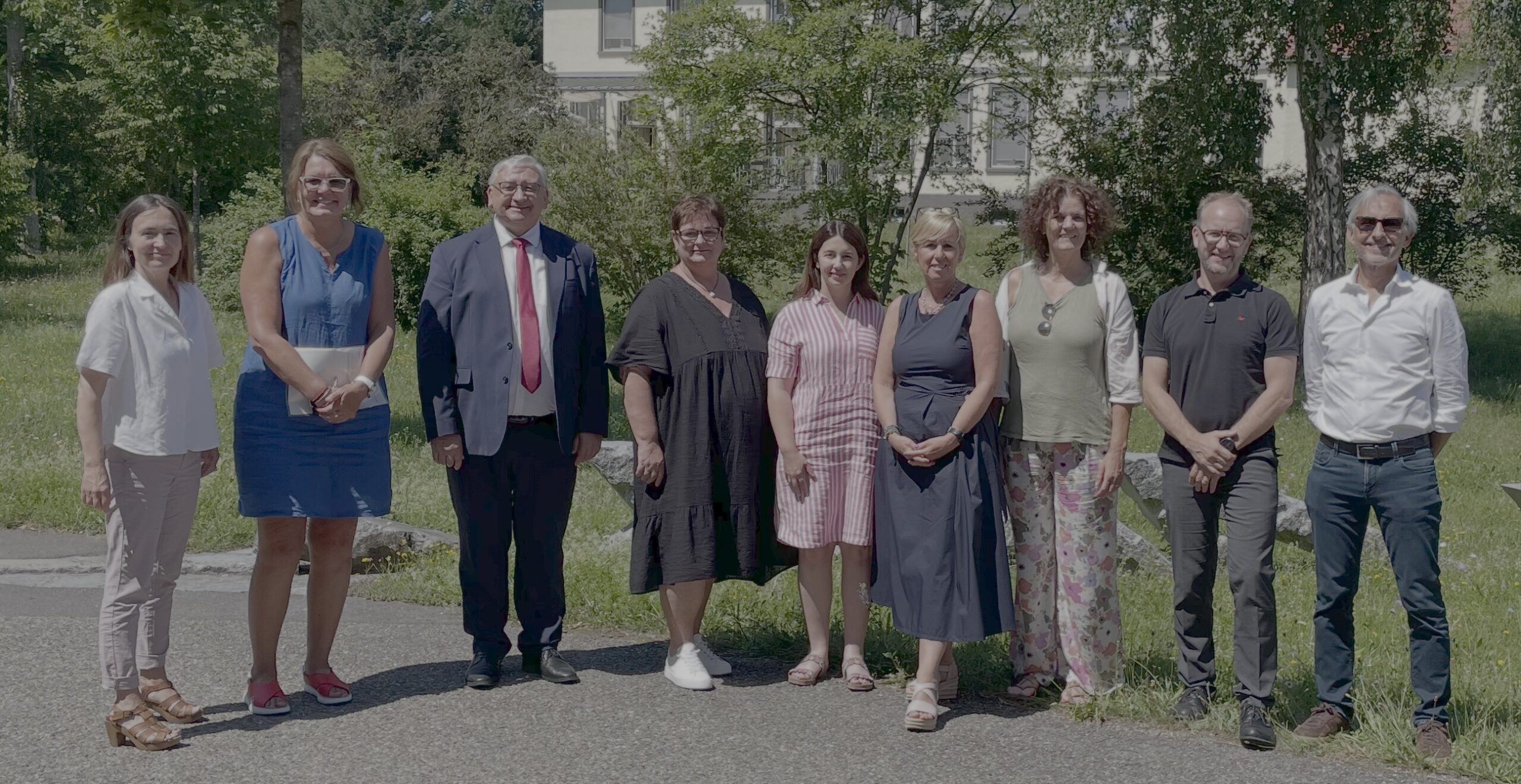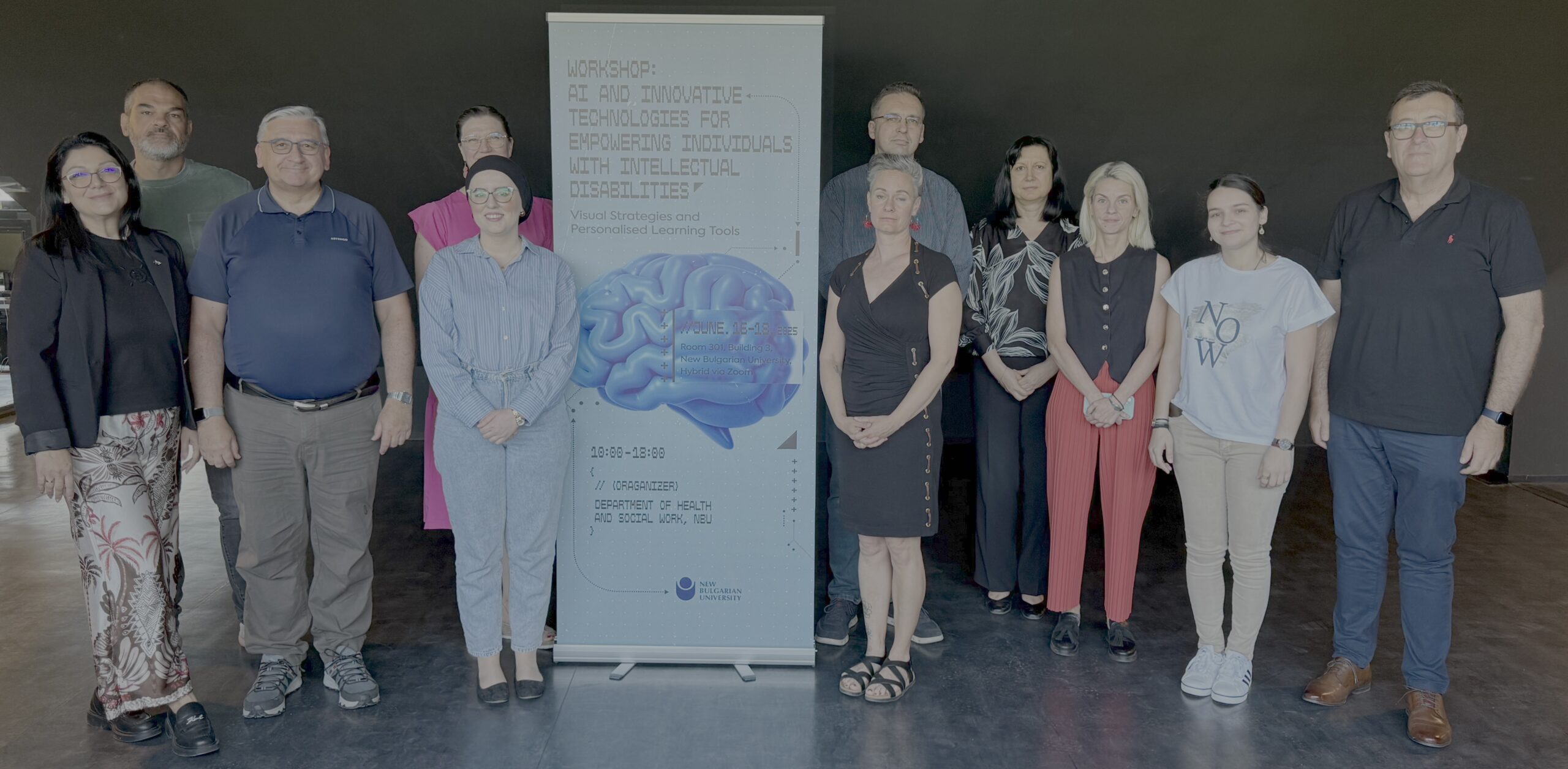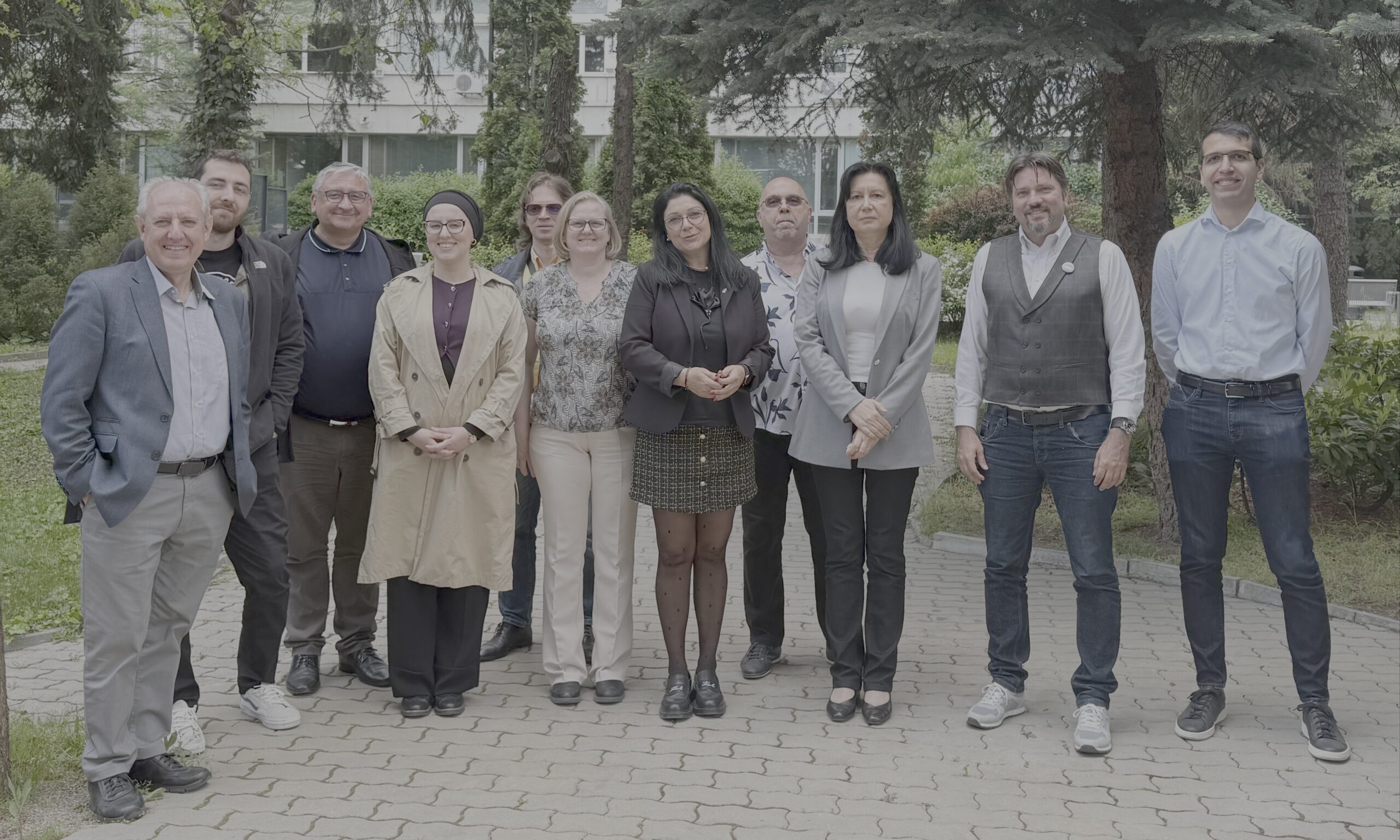Latest News
-
SALUS: Rethinking Health Innovation and Education
Sarajevo, September 22–23, 2025 This week, I had the privilege of contributing to the SALUS Workshop at the Bosniak Institute in Sarajevo (September 22–23, 2025), where experts, researchers, and innovators gathered to discuss the future of digital health, education, and technology integration. In my talk, I shared experiences and lessons learned from the SALUS project, which I coordinate,…
-
HTWG and Italian University Launch Research Cooperation on AI-Based Diabetes Management for Children
Konstanz, July 1, 2025 – As part of her doctoral research, Sara Campanella from Università Politecnica delle Marche has joined the Ubiquitous Computing Lab of Prof. Dr. Ralf Seepold to work on a collaborative research project focusing on AI-driven diabetes management for pediatric patients together with Daniel Velez Gutierrez. f.l.t.r. Prof. Dr. Ralf Seepold, Sara…
-
CareVolutionAI – Kick-off Meeting
Photo f.l.t.r. Claudia Fichtner, Angela Häusling, Prof. Dr. Ralf Seepold, Dragana Leidolt, Loredana Wachs, Carmen Helbok-Föger, Isolde Baas, Michael Brandstötter, Dr. Urs Guggenbühl CareVolutionAI – Kick-off Meeting Reichenau/Konstanz, 20 June 2025 – Representatives from all partner institutions celebrated today the official kick-off of a new cross-border health innovation initiative funded through the Interreg programme. The…
-
AI and Innovative Technologies for Empowering Individuals with Intellectual Disabilities
Sofia 16-18. May 2025. The SALUS research initiative met in Sofia at NBU with the aim of revolutionizing support for people with intellectual disabilities by developing an AI-powered, scalable training platform designed to improve basic social skills. The platform aims to significantly improve three core areas that often limit social participation and independence: social perception,…
-
Sleep Health For All
“255 – 15 – 10 – 3 – 1″ means that for 255 Minutes, 15 Experts from 10 countries in 3 sessions will talk on 1 day about Highlights on Global Advances in Digital Sleep Medicine INVITATION – “Sleep Health For All” Mini Symposium Highlights Global Advances in Digital Sleep Medicine Click on the picture…
-
AI-based fall sensor for nursing care
Konstanz, 15.May 2025. A new Alpine Rhine-Lake Constance-High Rhine region project redefines how we care for the aging population. Prof. Dr. Seepold says, “With just one smart 3D sensor per room, CareVolutionAI combines cutting-edge AI and privacy-first design to monitor, support, and protect – not only the elderly, but the caregivers themselves”. Discover how real-time behavior analysis,…
-
AI-based solutions in healthcare and biomedical research
Sofia, May 10-12, 2025. The SALUS group and new partners met this weekend in Sofia at the New Bulgarian University. The three-day event’s topic, “Developing AI-based solutions in healthcare and biomedical research,” is hot. Our partners from Eastern Europe and the Western Balkans are in dialogue to open a new chapter in cooperation.We identified a…
-
Strengthening Resilience through AI in Healthcare: HTWG Konstanz, Reutlingen University, and GJU Launch International Research Cooperation
During the kick-off meeting: Prof. Dr. Ralf Seepold (HTWG), Prof. Dr. Hisham ElMoaqet (GJU), Prof. Dr. Natividad Martínez Madrid (Reutlingen University), (l.t.r) Konstanz/Reutlingen/Amman – April 2025 Three universities from Germany and Jordan have come together to launch an international cooperation project that addresses one of the most pressing needs of our time: the application of…
-
AI-Driven Contactless Sleep Monitoring for Personalized Home Care
Seville, 14.04.2025. Lecture ahead! On April 22nd, at 18:30 in the classroom F0.84 of the ETSI Informática, the seminar “AI-Driven Contactless Sleep Monitoring for Personalized Home Care” by Professor Ralf Seepold (HWTG Konstanz) will take place as part of the series “Computing at the Crossroads,” to which the entire educational community is invited.
-
1st International Mental Health Workshop
FIRST IMPULS-AI ACEMATE WORKSHOP The event will be dedicated to the socialization and analysis of innovative projects in neuroscience and technologies applied to mental health in the Colombian child and adolescent population. The Event organized in the framework of the project “Diagnóstico temprano y de bajo costo para trastornos del control de impulsos en niños/as…




